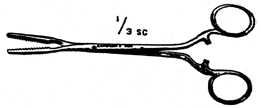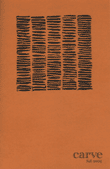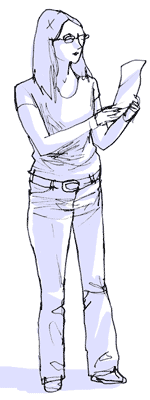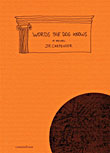Reading List 2005
More or less in chronological order, here's what I was reading in 2005.
. . . . .
- Rimbaud, A Season in Hell
- Aristotle, Poetics
- Julian Barnes, England, England
- Mary Gaitskill, Veronica
- Michel Tremblay, La Grosse Femme d'a cote est Enceinte
- Mordecai Richler, The Street
- Anne Carson, Glass, Irony and God
- Hesiod, Works & Days
- Theocritus, Idylls
- Virgil, Eclogues & Georgics
- Martialis, Epigrams
- Virginia Woolf, Orlando
- Jeanette Winterson, Sexing the Cherry
- Vita Sackville-West, Andrew Marvell
- Irving Layton, Waiting for the Messiah
- Mordecai Richler, Son of a Smaller Hero
- Lise Tremblay, Mile End (La Danse Juive)
- Mavis Gallant, Accross the Bridge
- Miriam Toews, A Complicated Kindness
- Francis Bacon, Essays & Aphorisms
- Robert Burton, The Anatomy of Melancholy
- Edwidge Danticat, The Dew Breaker
- Monique Troung, The Book of Salt
- Lydia Davis, Almost no Memory
- Ben Okri, Stars of the New Curfew
- Joseph Conrad, Heart of Darkness
- Denis Johnson, Fiskadoro
- Mary V. Dearborn, Love in the Promised Land:
The Story of Anzia Yezierska and John Dewey - Cynthia Ozick, The Pagan Rabbi
- Mario Vargas Llosa, Who Killed Palomino Molero
- Clarice Lispector, Near to the Wild Heart
- Barry Hannah, Yonder Stands Your Orphan
- James Joyce, Dubliners
- Nula O'Foalain, Are YOu Somebody?
- Knut Hamsun, The Growth of the Soil
- David Mamet, The Village
- Dostoevsky, Crime and Punishment
- Wallace Stegner, Angle of Repose
- Daniel Defoe, Moll Flanders
- Charles Baxter, Burning Down the House
- John Hawkes, The Beetle Leg
- Joy Williams, Honoured Guest
- Sherwin Tjia, The World is a Hearbreaker
- Grace Paley, Just as I Thought
- Barry Yourgrau, Wearing Dad's Head
- Lawerence Ferlinghetti, A Coney Island of the Mind
- Sheila Heti, Ticknor
- Bohuml Hrabal, Too Loud a Solitude
- Josip Novakovich, Salvation and Other Disasters
- Derrida, Writting and Difference
- OVID, Tristia & Ex Ponto
- Alice McDermott, Child of My Heary
- Anais Nin, Under a Glass Bell
- Cela, The Family of Pascual Duarte
- V. S. Naipaul, The Enigma of Arrival
- Lydia Davis, Samuel Johnson is Indignant
- Virginia Woolf, Paper Darts: Illustrated Letters
- Marci Denesiuk, The Far Away Home
- Djuna Barns, Nightwood
- Sharon Olds, The Dead and the Living
- Mark Richard, Charity
- Jon Paul Fiorentino,Asthmatica
- Gogol, The Overcoat
- Roland Barthes, Mythologies
- Anne-Marie MacDonald, As the Crow Flies
- Amy Hempel, The Dog of the Marriage
- OVID, The Metamorphoses
- Zadie Smith White Teeth
- Rainer Maria Rilke, Letters to a Young Poet
- Margurette Yourcenar, A Coin in Nine Hands
- Ron Carlson, At the Jim Bridger
. . . . .
Labels: reading
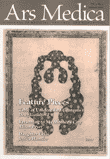 I began writing Notions of the Archival in Memory and Deportment as a response to the discourse of disembodiment that was prevalent in early days of the Internet. I never believed that the physical gendered body would be subsumed in an idealized information age. Even in our attempts to externalize and expand upon the processes of the brain through the computational and storage capacities of the computer, the precariousness of the biological body persists. It seems to me that somewhere along the way cultural theory veered away from body politics. In Notions of the Archival in Memory and Deportment I have tried to examine, from the inside, not just ‘the’ body, but also ‘my’ body in particular. I have focused on the storage and retention of bodily memory in order to explore the relationship and/or disconnect between body and mind that has preoccupied philosophers for generations. In Ethics, Part II: Of the Nature and Origin of the Mind, Spinoza writes: “The human mind is capable of perceiving a great number of things, and … is cable of receiving a great number of impressions… If the human body is affected in a manner which involves the nature of any external body, the human mind will regard the said external body as actually existing… Memory is simply a certain association of ideas involving the nature of things outside the human body, which association arises in the mind according to the order and association of the modifications of the human body… The human mind has no knowledge of the body, and does not know it to exist, save through the ideas of the modifications whereby the body is affected.”
I began writing Notions of the Archival in Memory and Deportment as a response to the discourse of disembodiment that was prevalent in early days of the Internet. I never believed that the physical gendered body would be subsumed in an idealized information age. Even in our attempts to externalize and expand upon the processes of the brain through the computational and storage capacities of the computer, the precariousness of the biological body persists. It seems to me that somewhere along the way cultural theory veered away from body politics. In Notions of the Archival in Memory and Deportment I have tried to examine, from the inside, not just ‘the’ body, but also ‘my’ body in particular. I have focused on the storage and retention of bodily memory in order to explore the relationship and/or disconnect between body and mind that has preoccupied philosophers for generations. In Ethics, Part II: Of the Nature and Origin of the Mind, Spinoza writes: “The human mind is capable of perceiving a great number of things, and … is cable of receiving a great number of impressions… If the human body is affected in a manner which involves the nature of any external body, the human mind will regard the said external body as actually existing… Memory is simply a certain association of ideas involving the nature of things outside the human body, which association arises in the mind according to the order and association of the modifications of the human body… The human mind has no knowledge of the body, and does not know it to exist, save through the ideas of the modifications whereby the body is affected.”